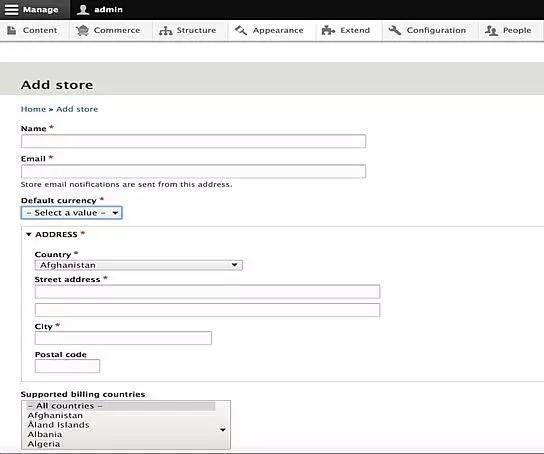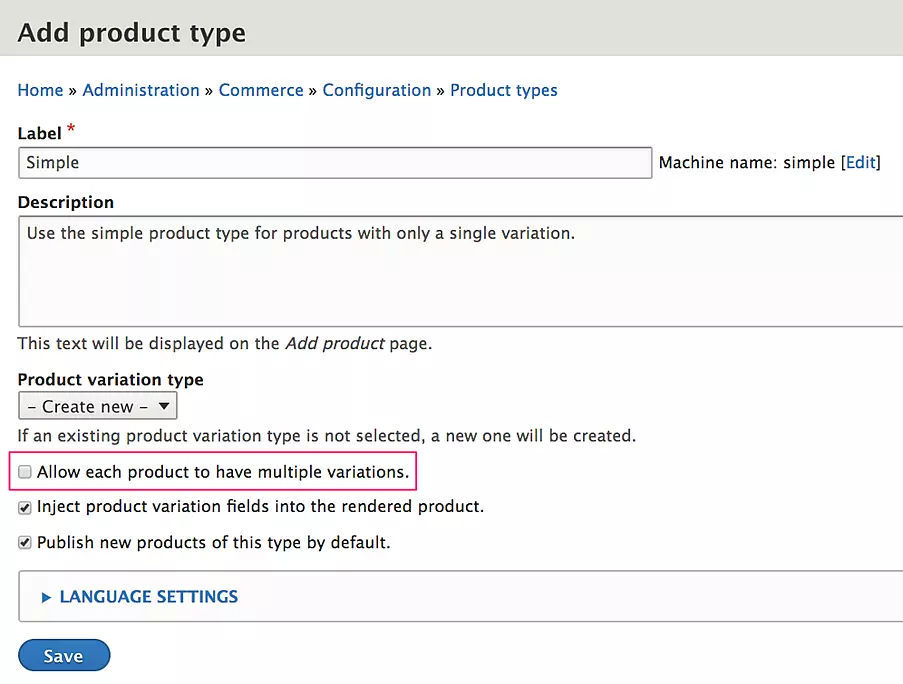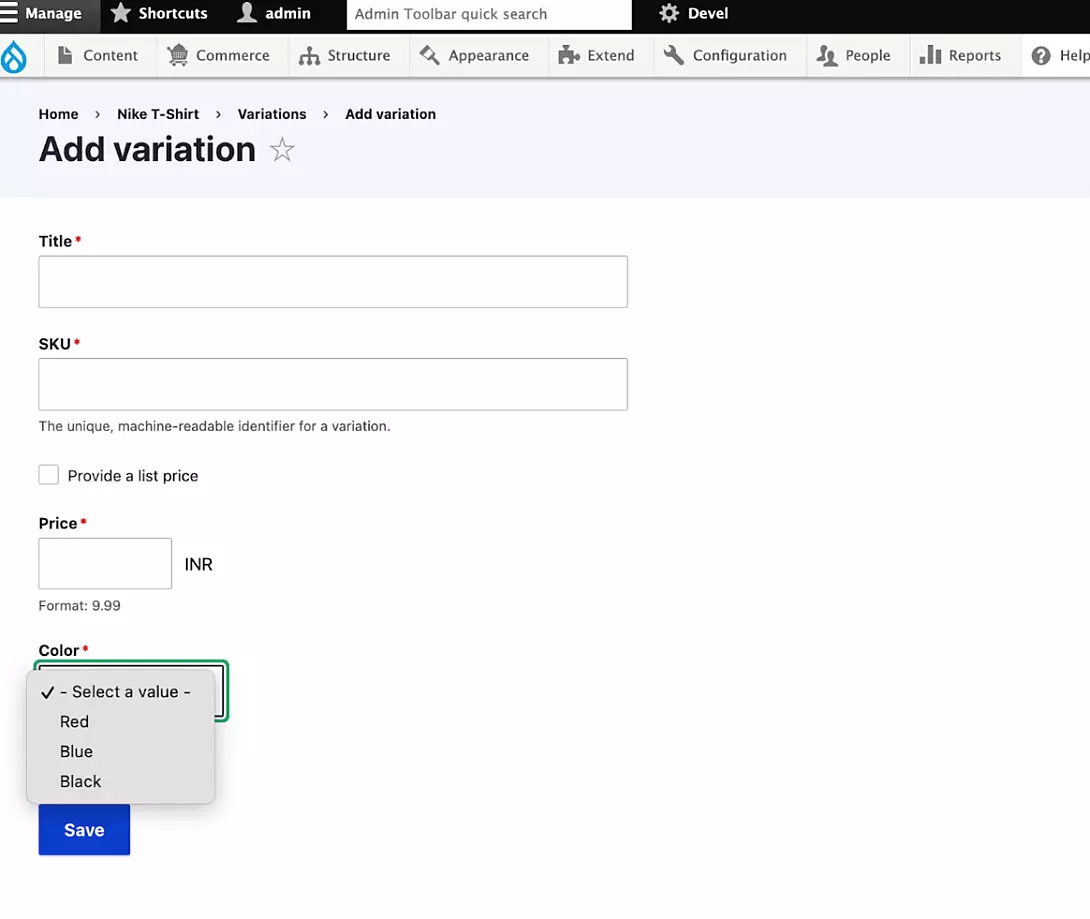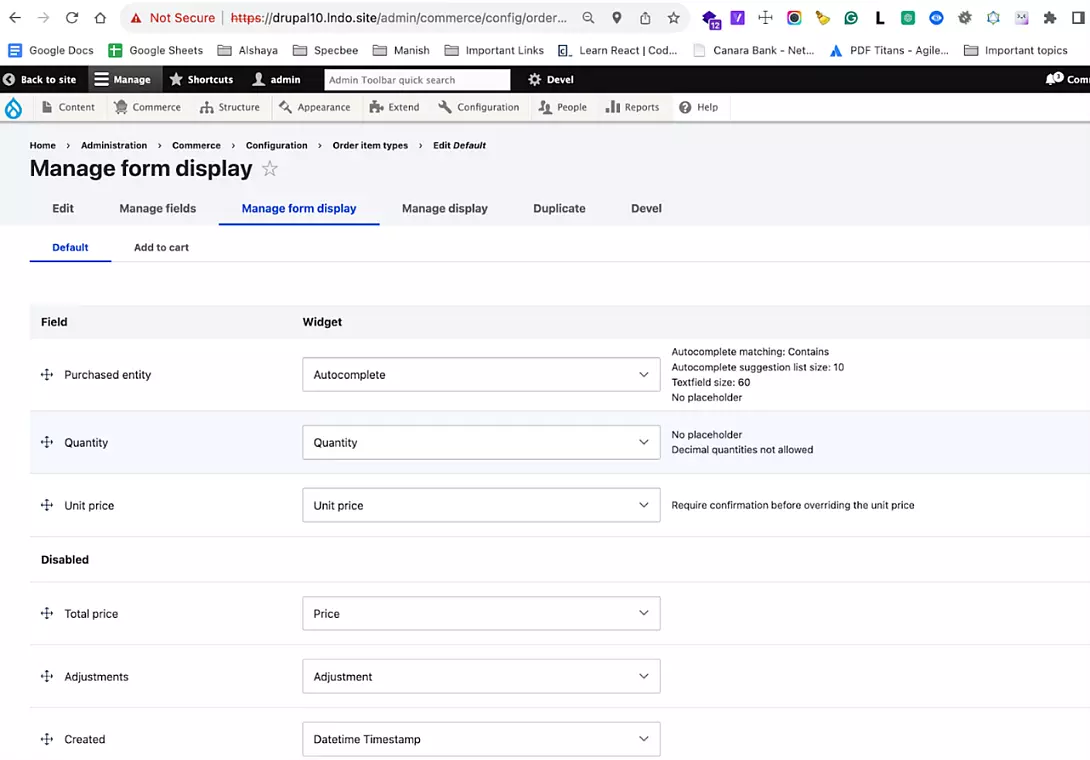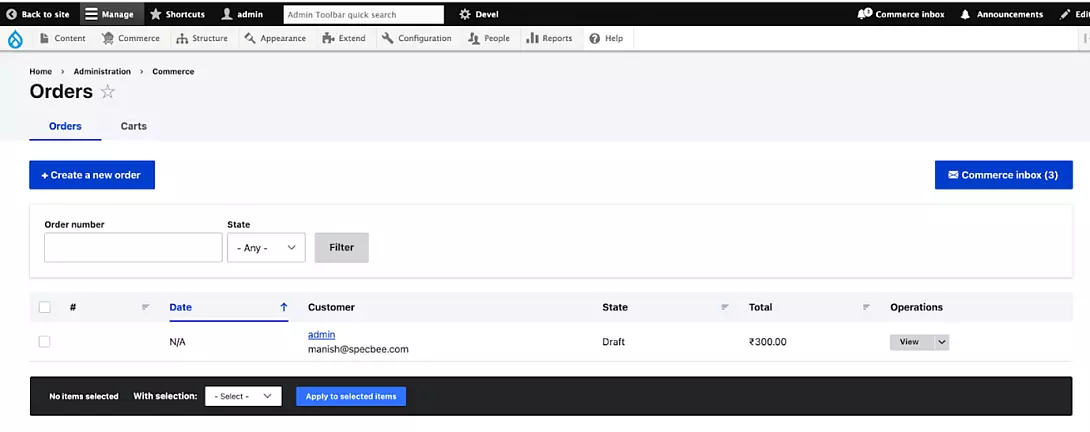Introduction
Each e-commerce venture possesses distinct needs, ranging from straightforward plug-and-play solutions to intricately customized developments. Emerging trends such as AI-driven personalization, seamless mobile experiences, and the rising emphasis on sustainability significantly influence the requirements of an e-commerce application. Employing a framework that facilitates extensive customization is indispensable for nearly every e-commerce establishment. In this discussion, we'll delve into one such e-commerce framework: Drupal Commerce. Combining the flexibility of Drupal with innovative capabilities, Drupal Commerce offers a comprehensive solution tailored to diverse business needs. Let's explore its features and architecture in detail in this article.
Key Features
Explore the standout features of Drupal Commerce that can elevate your e-commerce venture:
- Integration Capabilities - Drupal offers extensive integration options with various third-party services and tools, enabling seamless connections with payment gateways, shipping providers, and other vital services for e-commerce websites.
- Rule-Based Framework - Drupal Commerce, integrated with the Rules module, empowers administrators to establish intricate business rules and workflows, providing adaptability in managing diverse aspects of the e-commerce process.
- Headless and Decoupled Architecture - Drupal supports headless and decoupled architectures, allowing businesses to utilize Drupal as a back-end while employing different front-end technologies. This flexibility facilitates the creation of unique and tailored user interfaces.
Additional Features Include:
- Effortless Management of Multiple Stores - Seamlessly create and oversee multiple stores within Drupal Commerce.
- Multi-Currency Support - Conduct transactions in various currencies to cater to diverse customer bases.
- Flexibility and Scalability
- Robust Content Management Capabilities
- Active Community Support
- Custom Theming and Responsive Design
- Optimized for Search Engines (SEO-Friendly)
- Support for Multilingual Capabilities
- Enhanced Security Measures
The Significance of E-commerce Today
- Global Accessibility: With an internet connection, individuals worldwide can access e-commerce platforms.
- 24/7 Availability: Enjoy the convenience of round-the-clock access to shopping.
- Wide Range of Products: E-commerce offers a diverse selection of products, unlike offline shopping, which often has limited options.
- Contribution to Economic Growth: E-commerce stimulates economic development by providing a broad array of products, overcoming the stock limitations often encountered in traditional shopping.
- Contactless Transactions: Embrace the convenience and safety of contactless transactions within the digital shopping landscape.
Opting for Drupal Commerce
Now, let's address the question: Why should one consider the Drupal Commerce platform for e-commerce?
Amidst the plethora of CMS platforms available, including Magento, WordPress, Shopify, and Drupal, making the right choice can be daunting.
Here are some compelling reasons to choose Drupal as your e-commerce platform:
Drupal Commerce: Architecture and Components
Let's now explore the architecture and components of Drupal Commerce. Drupal Commerce encompasses various types of entities, including:
Store: Can products be added without a store? Absolutely not! A pivotal element in Drupal Commerce, the store, plays a vital role in regulating billing and shipping countries available during the checkout process. Each store can even possess its own currency, advantageous for dealing with multiple currencies across different locations.
Product Architecture: Understanding the product structure is imperative before venturing into adding
Imagine your store selling t-shirts or shirts. These products come in various sizes, colors, types, fabrics, etc.
To manage this complexity, Drupal Commerce introduces Product Attributes. For instance:
- Product Type: t-shirt
- Size: Product Attribute
- Color: Product Attribute
In Drupal Commerce:
- There's a single product entity.
- This product entity comprises 7 different product variations.
- Size Product Attribute has 3 values: Small, Medium, and Large.
- Color Product Attribute has 4 values: Green, Orange, Red, and Blue.
Order Entities: Order entities contain crucial information about the product, its variation, and customer details.
- Order Items: These represent purchased items within the order.
- Order Types: Each order type has its own settings for the cart and checkout pages.
We will delve into more practical implementations of this later on.
Implementing Drupal Commerce
Prerequisites
- Ensure you have a web server that meets Drupal’s requirements.
- The recommended memory limit is 256MB or higher.
- Install the latest version of Composer to manage dependencies.
- Use DDEV or Lando for local development.
Drupal Installation
composer require "drupal/commerce"Enabling Commerce
drush en commerce_product commerce_checkout commerce_cartGetting Started
- Create a Store
From the toolbar, go to Commerce > Configuration > Store > Stores and click on the Add Store button. Once the store is added, you can easily add and display products.
Configure Different Product Entities
- To add a new Product within a Store, first create a Product Type by navigating to Commerce > Configuration > Product types or visit /admin/commerce/config/product-types.
- Click on the Add Product type button.
- When selecting "Create new" for Product variation type, there's no need to add Product variation separately.
- Now, create Product Attributes for the same Product Type by navigating to Commerce > Configuration > Product Attributes or simply visit /admin/commerce/product-attributes and click on the Add product Attribute button.
- While adding a Product Attribute, you'll notice the presence of the Product variation types created earlier, allowing you to map your attributes to variations. Consequently, these attributes will be visible when adding variations to any product.
Add Products
- To add a Product, go to Commerce > Products and click on the Add Product button.
- Enter your Product Details and click on Save and add variations.
Displaying Products
Product Display Pages
- Customize the product pages from the "Manage Display" tab option. For multi-product displays, create a view page to display multiple products.
Add to Cart Form
- Include the Add to Cart form on product pages or other pages where users can add products to the cart.
Product Images
- Add Product Images by adding a field inside the Product Variation Type entity, enabling different images to be uploaded for each Product variation.
- Utilize the Drupal Core Image module to create a custom image style for products.
- For creating a custom view mode for product variations, use the Image delta formatter module.
Add Payment Gateway
Drupal Commerce provides a default COD (Cash On Delivery) payment gateway, but you can configure different payment gateways as well. Learn more about adding a payment gateway here.
Orders
Manage orders from the Orders page by navigating to Commerce > Orders.
Benefits
- Global Reach
- 24/7 Accessibility
- Diverse Product Offerings
- Economic Growth
- Contactless Transactions
Conclusion: Revolutionize Your E-commerce Experience with Drupal Commerce
Embarking on your e-commerce journey with Drupal Commerce opens the door to endless possibilities. From its robust architecture to its seamless integration capabilities, Drupal Commerce empowers businesses to create immersive and tailored shopping experiences.
With its flexible product architecture and intuitive management interface, Drupal Commerce simplifies the process of adding, managing, and selling products online. Whether you're a small boutique or a large enterprise, Drupal Commerce scales effortlessly to meet your growing needs.
Furthermore, Drupal Commerce doesn't just stop at transactions; it fosters long-term relationships with customers through its powerful order management system and personalized shopping experiences.
So, if you're ready to elevate your e-commerce game and stand out in the digital marketplace, Drupal Commerce is your ultimate ally. Harness its power, unleash your creativity, and watch your online store thrive like never before.
Start your Drupal Commerce journey today and redefine the way you do business online!
